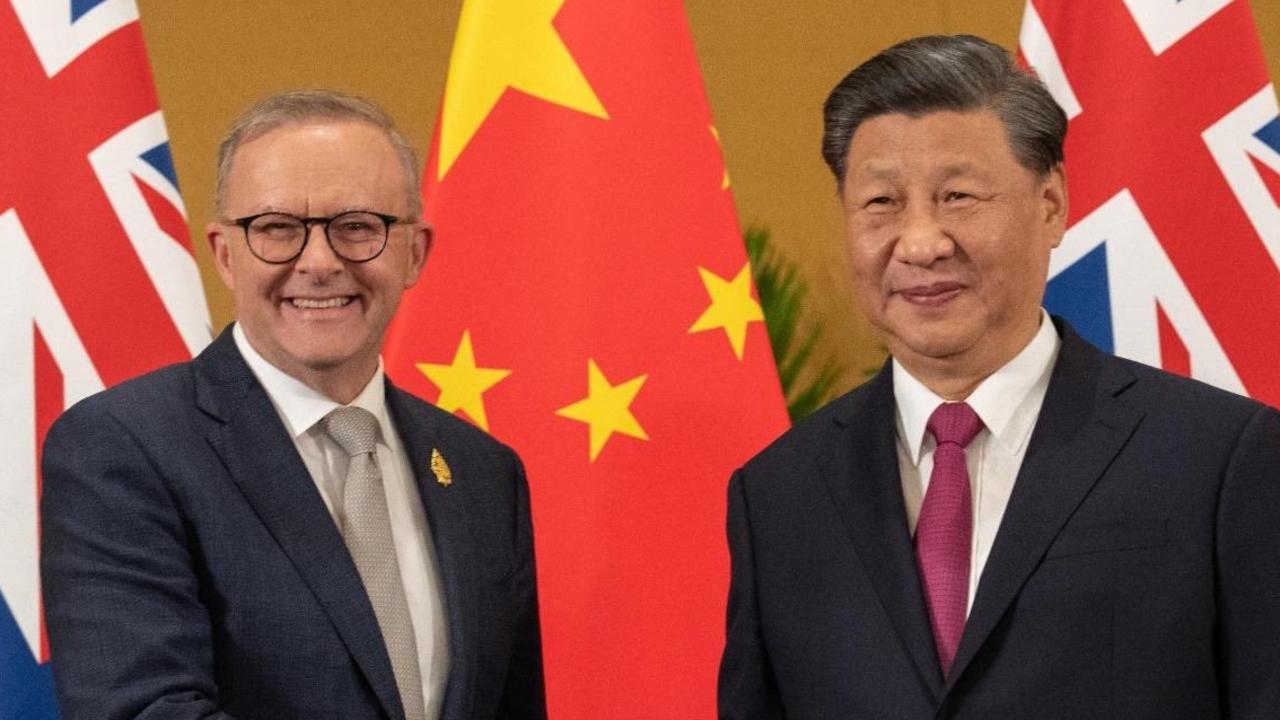Beijing has warned Australia to “be careful” against acting on its “unwarranted anxieties toward China”, questioning how relations can improve while Canberra accuses it of coercion.
In an opinion piece by Chinese government mouthpiece the Global Times, Beijing lamented that despite a significant thawing in the bilateral relationship, Australia’s newly published defence strategy undermined the inroads so far made on trade.
China also accused Canberra of falling victim to the Washington-led “imaginary war with China”, warning that Australia’s US-aligned defence strategy posed an “extreme danger” that would increase risks in the long run.
It follows this week’s release of Australia’s national defence strategy and the confirmation the defence budget would increase by $50bn over the next decade in a bid to counter China’s “coercive tactics” and the growing risk of regional conflict.
The strategy found the strategic environment had deteriorated over the past year, pointing to a rising risk of conflict in the Indo-Pacific as China builds up its military capabilities.
“The risk of a crisis or conflict in the Taiwan Strait is increasing, as well as at other flashpoints, including disputes in the South and East China Seas and on the border with India,” the strategy said.
“In line with its growing strategic and economic weight, China is improving its capabilities in all areas of warfare at a pace and scale not seen in the world for nearly a century.”
A day after a Chinese government spokesman told Australia to “abandon the Cold War mentality”, the Global Times piece went further, saying the strategy was a “serious miscalculation” of the situation in the Asia-Pacific region and a “misjudgment of China’s strategic intentions”.
“China and Australia have no historical grudges or fundamental conflicts of interest, and China has no intention of treating Australia as an enemy, but it is always described as a “threat” by Australia,” the piece said.
Defence Minister Richard Marles this week said the intensifying competition was real.
“(It) is creating an environment where the risk of miscalculation is more ominous, and the consequences more severe … Australia no longer has the luxury of a 10-year window of strategic warning time for conflict,” he said.
Beijing said the government “must be careful not to make misjudgments” when it came to China’s destiny as it urged Canberra to change its mindset.
The piece also said the “mutual respect” exhibited during Chinese Foreign Minister Wang Yi’s visit to Australia earlier this year – which came amid pressure on China to drop its remaining trade tariffs – should be the norm for the two countries’ relationship.
The piece said Australia had ignored history, international norms and distorted China’s “legitimate rights”.
“Australia has mistakenly characterised some of China’s actions in safeguarding national sovereignty and territorial integrity as ‘coercive tactics’,” the Global Times said.
“China has never shown off its force or engaged in any coercive behaviour near Australia. On the contrary, Australia joined joint naval exercises in the South China Sea in early April with the US, Japan and the Philippines, stirring up the regional situation and acting aggressively on China’s doorstep.”
While critical of the government’s strategy, Coalition foreign affairs spokesman Simon Birmingham said countries were “right to look at with concern some of China’s actions”.
“If China wants to be viewed in a different way, then it should cease being so confrontational with the Philippines; it should cease when a parliamentary delegation visits Taiwan, for example, responding with huge military activity and the firing of missiles overland in such confrontational ways; it should cease engaging in military co-operation with a country like Iran in the midst of a period of time when Iran is sponsoring such terrorist activities and atrocities and in the last week has undertaken direct military strikes and action against Israel,” he told Sky News.
“The reality is China is behaving in ways through its military build-up as you referenced and the way in which it uses and conducts those military operations and activities that are cause for concern and therefore necessitate strong clear defence strategy and significant defence investment.”
